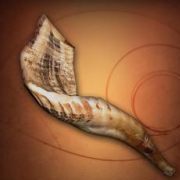Ezekiel 38 - 39 Study Notes, Part 2, Topic 2: The Nations
Ezekiel 38 - 39 Study Notes, Part 2
Topic 2: The Nations
Ezekiel 38:2 “Son of man, set your face against Gog of the land of the Magog, the
נשיא/nasiy'/exalted one of Rosh, Meshech and Tubal… 5 Persia, Ethiopia [Heb. Cush], and Libya [Put/Phut] with them… 6 Gomer, and all his bands; the house of Togarmah of the north quarters…”
The alternate reading for Ezekiel 38:2 – “the chief prince/nasiy' of Meshech,” as in the KJV – instead of “the nasiy' of Rosh,” violates the Hebrew grammar.
Magog, Meshech, and Gomer were all sons of Japheth, who was one of the three sons of Noah – “Shem, Ham, and Japheth.” Togarmah was a son of Gomer. Gen. 10:1-3
After the fall of the Tower of Babel and God’s subsequent dispersion of the nations, the descendants of Japheth went northward from Babylonia, and thence spread from Europe to eastward of Russia’s Ural Mountains. Rosh is probably correctly identified with the Rus, the progenitors of the Russians. Jasher 10:14 records that Rushah was a son of Japheth’s son Tiras.
Persia, Ethiopia, and Libya are more or less the same nations as today. Although Cush could perhaps more generally refer to Black Africa; see below.
* * *
Ezekiel 38:13 “Sheba, Dedan, the merchants of Tarshish, and all their young lions will say to you, ‘Have you come to take plunder? Have you gathered your army to take booty, to carry away silver and gold, to take away livestock and goods, to take great plunder?’ ”
Genesis 10:6 The sons of Ham: Cush, Mitzraim, Phut/Put, and Canaan. 7 The sons of Cush: Seba, Havilah, Sabtah, Raamah, and Sabtechah; and the sons of Raamah: Sheba and Dedan.
Elsewhere in the OT, Cush is mostly translated as “Ethiopia.” It specifically referred to the general area of modern Sudan and Ethiopia, and more generally to Black Africa/Africans. The sons of Ham [Heb. Cham, which means “hot”] moved southward from Babylonia into the hotter lands, and particularly into Africa. Mitzraim became the nation of Egypt; Phut became Libya.
Ezekiel 27:12 “Tarshish [Britain] was your [Tyre’s] merchant because of your many luxury goods. They gave you silver, iron, tin, and lead for your goods.
The only significant source of tin in Europe and the Middle East was from Britain’s formerly famous, but now sunken, mines of Cornwall. Tin is an essential element for making bronze. Tarshish was a grandson of Japheth. Gen. 10:4
Ezekiel 38:15 The men of Dedan were your traders… They brought you ivory tusks and ebony [from Africa]… 22 The merchants of Sheba and Raamah were your merchants. They traded for your wares the choicest spices, all kinds of precious stones, and gold.”
I Kings 10:1 …the queen of Sheba heard of the fame of Solomon… 2 She came to Jerusalem with a very great retinue, with camels that bore spices, very much gold, and precious stones…
According to both Hebrew and Ethiopian history, the Queen of Sheba was impregnated by Solomon and bore Menelik I of the Ethiopians. Queen Candice of Acts 8:27 was of this line. The last such monarch was King Haile Selassie of Ethiopia, who was deposed in 1974 by a Communist takeover.
Sheba and Dedan were the sons of Raamah the son of Cush. Their historical trade and gift items – ivory tusks, ebony, spices, gold, and precious stones – were typically sourced from Africa. Yemen was once a major source of spices, but no longer is. Therefore, the now-common identification of Sheba and Dedan as being of Saudi Arabia is very unlikely.
https://www.worthychristianforums.com/blogs/entry/2814-index-and-summaries-of-articles/



0 Comments
Recommended Comments
There are no comments to display.